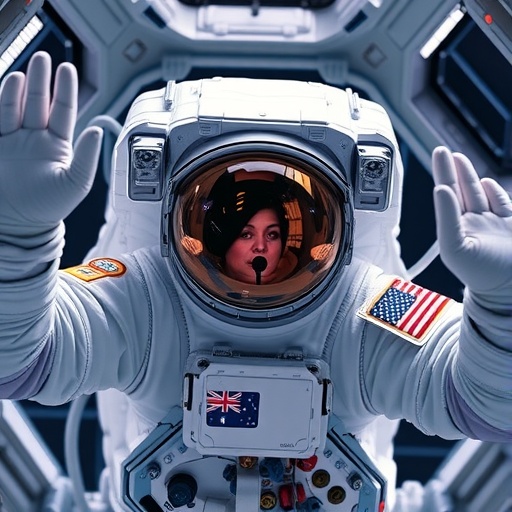Research conducted by Houston Methodist has unveiled a significant issue facing astronauts on the International Space Station (ISS) – nasal and sinus complications stemming from the unique environment of outer space. A remarkable statistic emerged from the study, illustrating that approximately 85% of astronauts reported experiencing at least one nasal or sinus-related issue during their missions, indicating a prevalent health concern that could have tangible implications for those venturing into space. As humans embark on increasingly longer voyages into the cosmos, understanding the physiological changes in space becomes paramount not only for astronauts but also for potential space tourists.
The research, spearheaded by Dr. Masayoshi Takashima, who serves as the chair of the Department of Otolaryngology – Head and Neck Surgery at Houston Methodist, analyzes a comprehensive dataset of 754 medical events involving 71 astronauts spanning from the year 2000 to 2019. The findings revealed that 75% of astronauts reported nasal congestion, a condition believed to arise from the absence of gravity which affects the normal distribution of bodily fluids. This disruption can lead to fluid retention in the nasal passages, causing swelling and congestion that compromises the overall well-being of astronauts while operating in the confines of the spacecraft.
While astronauts typically embody peak physical fitness, the study highlights an unexpected vulnerability. The research underlines how spacewalks exacerbate nasal and sinus problems due to sudden pressure changes that occur during the transition from the cabin environment to a space suit. The researchers noted that these pressure shifts can lead to not only increased congestion but also barotrauma, which refers to injuries inflicted upon the ears and sinuses due to abrupt changes in pressure. Such injuries can bring about an array of symptoms, including severe ear pain, muffled hearing, and an uncomfortable sensation of fullness that can detrimentally affect mission performance.
The study brings to attention the fact that over-the-counter medications utilized on Earth may not yield the same therapeutic benefits in a microgravity environment. Astronauts may face unique challenges in administering common sinus relief approaches, making it imperative to explore effective treatments specifically for use in space. The implications of these findings are crucial as we stand on the brink of a new era in human spaceflights, especially since the notion of space tourism is becoming an imminent reality.
Dr. Takashima underscores the seriousness of addressing these complications, especially when considering that civilians with preexisting health conditions may soon be part of the astronaut demographic. Given that these individuals might face even greater challenges in maintaining their health and performance, preventative measures are necessary to ensure that they do not face the complications experienced by seasoned astronauts. Evaluation for potential nasal and sinus issues prior to space travel, as well as possible minor corrective procedures, could become standard practice for aspiring astronauts.
Moreover, Takashima emphasizes the significance of developing targeted treatment protocols that are effective in the unique environment of space. This venture is not solely about comfort; maintaining respiratory health is crucial for optimal cognitive function and mission execution. Astronauts need to be at their peak mentally and physically, and any obstruction in their ability to breathe freely can have cascading effects on their performance during critical operations.
The insights gained from this study highlight the importance of addressing not just the physical aspects of space missions but also the underlying health concerns that personnel may face. As we continue to send individuals into space, the standards of care and the preparation required for such an endeavor will need to evolve significantly. This necessitates a deeper understanding of how the space environment impacts human physiology beyond just the muscles and bones, extending to more nuanced areas such as sinus and respiratory health.
In conclusion, the research published in the open-access journal Laryngoscope Investigative Otolaryngology presents not only a startling revelation about the intersection of space travel and health but also serves as a catalyst for further investigation into how best to prepare astronauts for the rigors of outer space. The aim is to ensure that they can perform at their best, devoid of the negative impacts linked to sinonasal complications. As humanity embarks on new journeys into the cosmos, this research lays vital groundwork for safeguarding the health of astronauts and potential space tourists alike.
The findings underscore the urgent need for ongoing research into the health impacts of space travel. Understanding the peculiarities of human biology in microgravity will be essential for the success of future missions, especially as we eye ventures to longer-term destinations such as Mars. With the search for solutions moving forward, the lessons learned from this study will help shape the health protocols and standards implemented in space exploration.
Subject of Research:
Article Title:
News Publication Date:
Web References:
References:
Image Credits:




